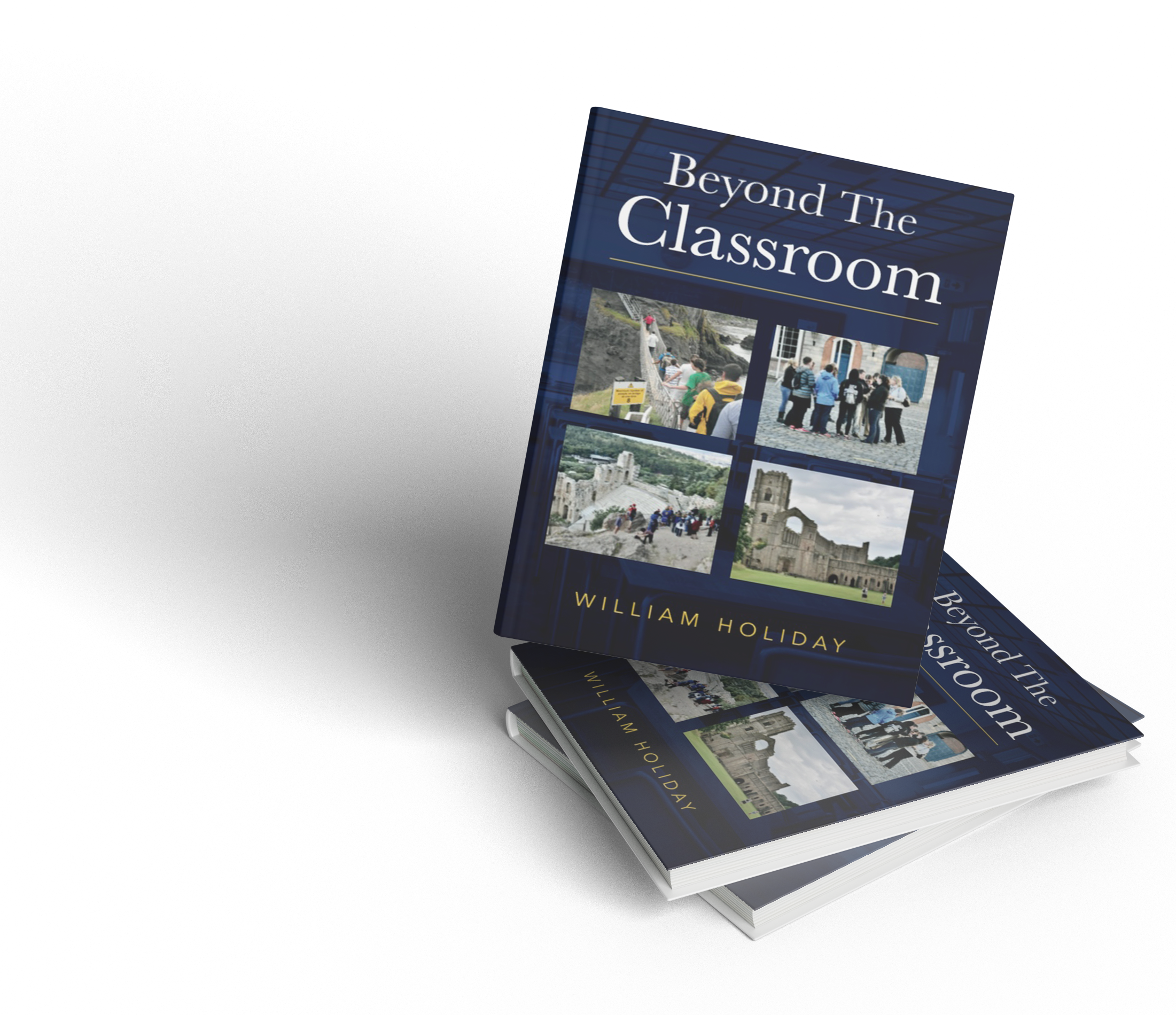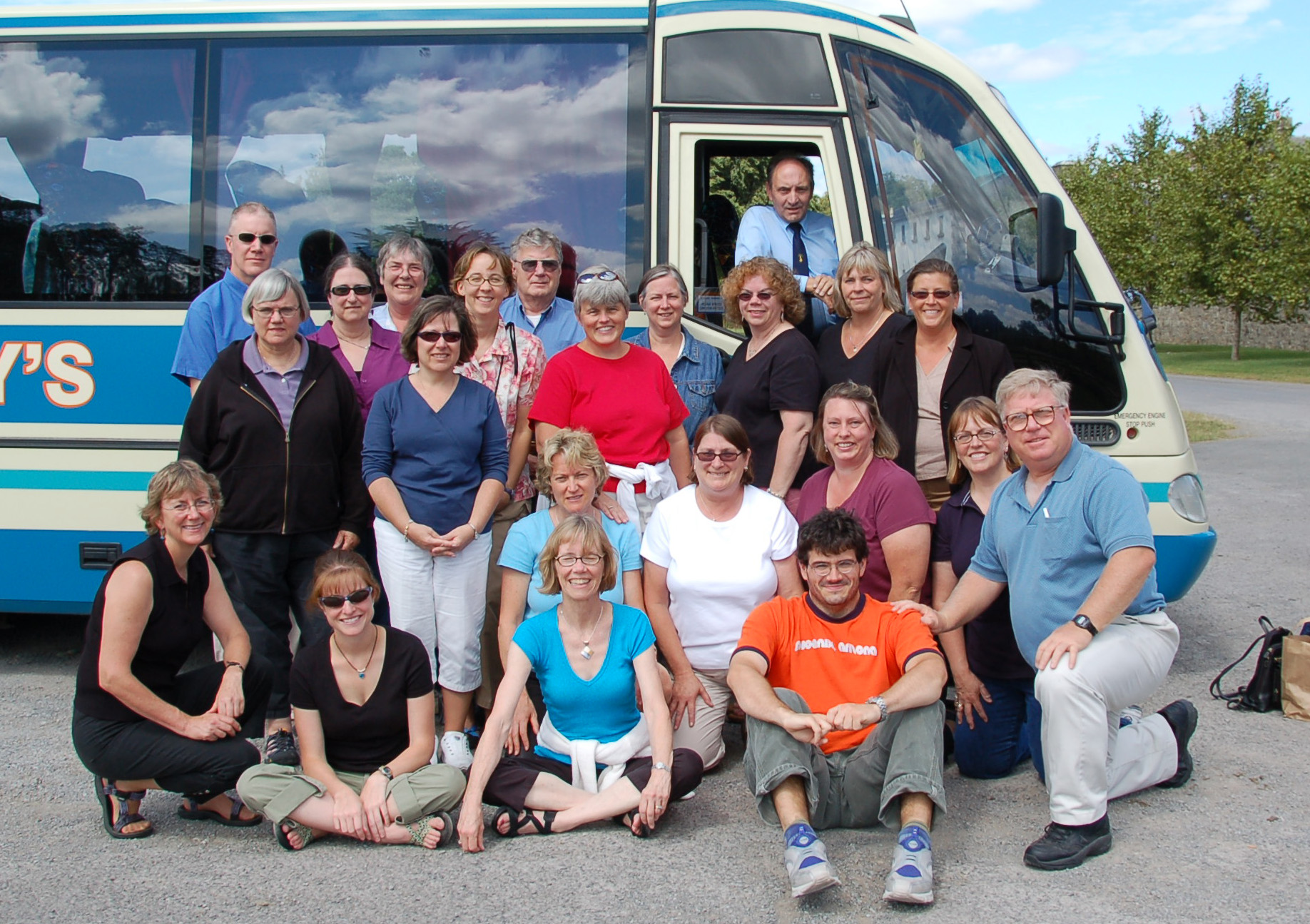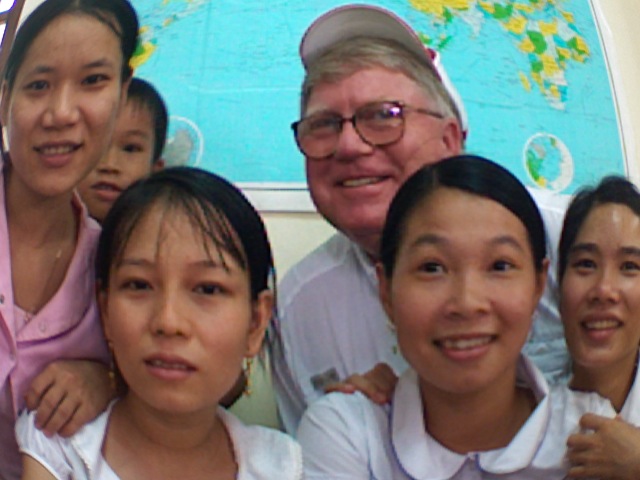Beyond the Classroom
If given a utopian opportunity, class would never be in a classroom. It would be ‘out there’, on the road in a bus, a van, something to take us to where the things happened.

The UnTextbook
It seeks to be an incentive to educators to think beyond the daily activities of traditional classrooms, homeschool teachers, and a guide for some controversial events.

The Podcast
Beyond the Classroom is a podcast about the life-changing opportunities found when learners step outside the confines of their school building and go to where history happens.
The British Approach
My philosophy of education is heavily influenced by what was called ‘the British Approach’ to primary education, odd for a secondary and collegiate instructor it would seem. I have spent my career in adapting instructional techniques and strategies designed for elementary students to my high school and collegiate courses. It has always been, “How can I use this, adapt it, make it work for the students?”

Learner Centered
My approach has always been to center instruction around the learner, not the educator. British primary schools in the 1970’s did this. It led to the popularity of the ‘open school’ approach in the United States. There is a high school 20 miles from where I write that was built without walls to effect the open school approach. This simplistic approach did not work in this country and was heavily, if somewhat inappropriately, criticized by right wing America. An example may be found here: https://archive.org/details/FreedomTalkEducation
What do you teach?
I have always taken issue with the terminology in response to the question, “What do you teach?” I answer, “I teach students, or, rather, I put students in a position to learn.” That is my objective. My classes are not about me. They are about my ability to put students in a position where they can learn. Thus, when I hear teachers exclaiming, “This is my favorite unit!”, I ask, “Is it your students’ favorite?”
Classroom Management
When students are positioned to know what to do and when transitions from activity to activity are seamless, classes run smoothly. Planning and foresight are the keys. One of my strengths is my organizational skill and classes virtually always include more than a single activity.
The Sound of History
Perhaps one of the more innovative public activities that epitomizes my philosophy is a course I taught in the fall semester of 2017 titled ‘Film, Music & History’. It was a Collegiate Dual Enrollment course with students who registered gaining 3 college academic credits at a nearby university as well as high school graduation credit. I reached out to a local commercial radio station and then offered the students the opportunity to produce a weekly ½ hour radio program showcasing the history they were learning in class through music and film. I organized Field Studies (I do not use the terminology ‘field trip’) to the Rock & Roll Hall of Fame in Cleveland, Ohio; Kent State University in Ohio where students learned from and conversed with shooting victim (May 4, 1970) Alan Canfora.
Create Options
Providing a variety of options for students is essential to my philosophy. I have a list of dozens of assessment choices for students. I encourage artwork, music and other creative opportunities for students. I once had a skilled student come to me when she had met an opportunity to move on at her own pace, but had to pick a direction from several choices. She said, “I don’t know which one of these to choose. I want to do them all!” Of course, she did not have time and had to make the choice.
Always on the Road Again
We traveled to NPR’s and Motel 6’s celebrity Tom Bodett’s recording studio. We met with WTSA radio studios DJs to learn the corporate side of radio as well as how radio has changed in the past 50 years (Traveling Wilbury’s ‘The Last DJ’). We invited local ‘historic’ bands to class and created radio programs about them. The Trophies (from Brattleboro) lead singer, Wayne Harvey, commented, ““Hi Bill, I did listen to the production, and I was very impressed and pleased. You guys did a tremendous job, and it was exciting to reminisce. I definitely want to listen again. It sounds as though you guys had a lot of fun doing this, and all the other projects!”

If given a utopian opportunity, class would never be in a classroom. It would be ‘out there’, on the road in a bus, a van, something to take us to where the things happened. To that end I have traveled widely in the United States. Vietnam, Cuba. I have taught courses in several locations in this country and in England, The Republic of Ireland, Northern Ireland, Greece, Italy, Cuba, Germany and Europe. I have taken middle and high school students on Field Studies to Dallas, TX (JFK assassination), Alabama (Civil Rights Movement), Washington, D.C, England, The Republic of Ireland and Northern Ireland.
I have not used a textbook since 1973 and just concluded my 48th year as a public school educator – 12 years grades 5-8 and 36 years in 9-12 and college adjunct. Throughout the years I have, and I continue to pursue the art of integrated education.